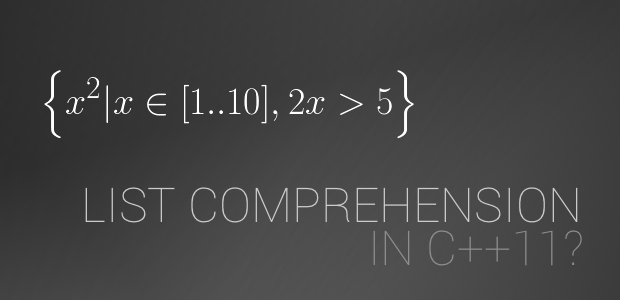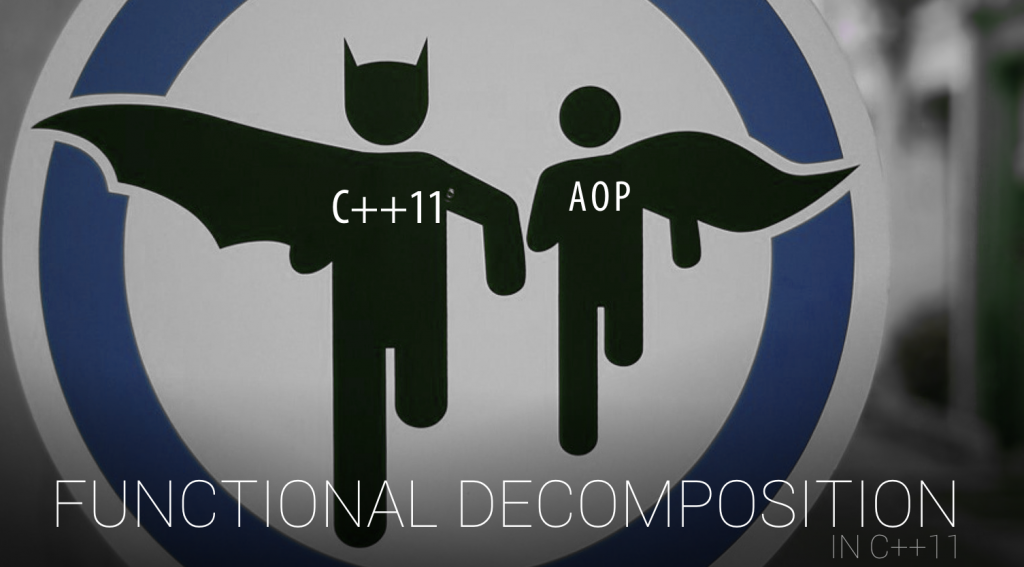List comprehension in functional languages is the name of list constructor syntax, which is similar to set-builder notation from math.
What are the benefits of using list comprehension? One is readability, and the other one is the fact of decoupling iteration from actual construction. We could even hide parallel execution under the hood of list comprehension. Also by adding additional options to such declaration we could make the list construction a lot shorter.
If we look closer at list comprehension’s syntax, it will remind of one another very familiar thing – SQL select! Output expression, input set, predicates are equivalent to select, from, where sequence (of course not exactly, but they are very alike). Ok, let’s implement such syntax sugar using C++11 (without boost and LINQ-like libs).

